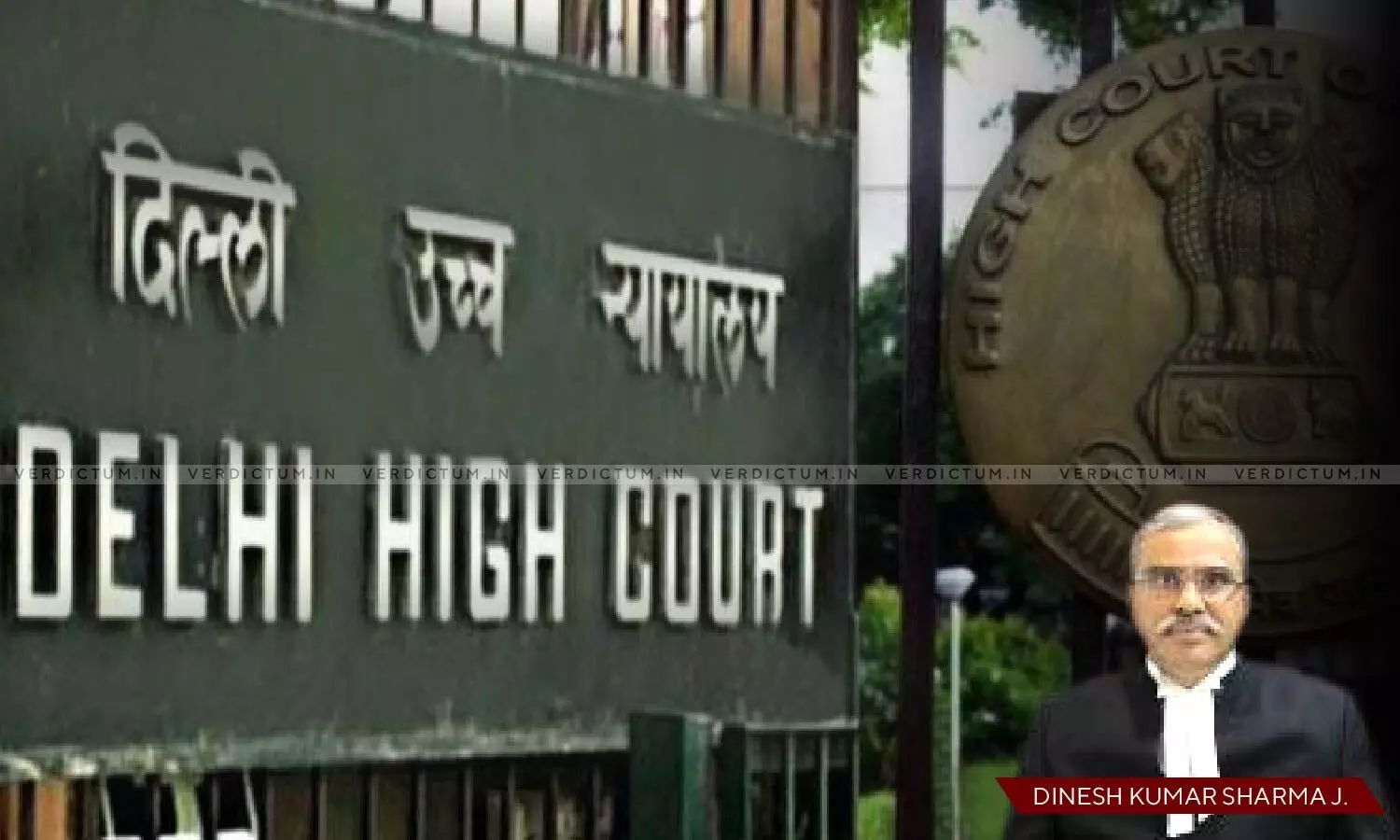
Court Has To Evaluate If Accused Was Member Of Organized Crime Syndicate Or Had Required Mens Rea Even At Stage Of Bail: Delhi HC In Extortion Case
 |
|The Delhi High Court has granted bail to Pinky Irani, a close aide of conman Sukesh Chandrasekhar, who was facing allegations of facilitating contact between Chandrasekhar and various Bollywood celebrities in a case involving an extortion amount of Rs. 217 Crore.
The High Court held so while considering an application seeking bail in a case registered under Sections 170/ 384/ 386/ 388/ 419/ 420/ 506/ 186/ 353/ 463/ 471/ 120-B of the Indian Penal Code (IPC), Section 66-D of the Information Technology Act, and Sections 3 and 4 of the Maharashtra Control of Organized Crime (MCOC) Act, 1999.
A Single Judge Bench of Justice Dinesh Kumar Sharma observed that “It is an admitted case that the petitioner was not directly involved in the foundational crime. However, taking into account the fact that the mens rea is a necessary ingredient, this court even at the stage of bail has to examine and evaluate whether the petitioner was a member of the organized crime syndicate or had required mens rea. It is pertinent to mention here that the act alleged to have been committed by the alleged accused should not only be prohibited by law but should also be a cognizable offence punishable with imprisonment for three years or more and must have been done singly or jointly as a member of an organized crime syndicate or on behalf of such organized crime syndicate”.
The Bench further added that “It is also pertinent to mention that the alleged offence should be relatable to the statement of objects and reasons and the ingredients of “continuing unlawful activity” and “organized crime”. This Court considers that the allegations are required to be tested during the trial to meet the requisite of MCOCA”.
Advocate R.K. Handoo appeared for the Petitioner, whereas Senior Advocate Sanjay Jain appeared for the Respondent.
The prosecution's case revolved around a series of extortion activities. It began with a call from an individual who impersonated a senior Ministry of Law officer to the complainant, Ms. Aditi S. Singh. This person claimed to help with her legal matters and demanded Rs. 20 Crores, outlining the payment details. Subsequently, the accused, posing as high-ranking government officials, allegedly extorted a total of Rs. 217 Crores from the complainant. In a specific incident, the complainant received a call to deliver Rs. 1 Crore, which led to a trap where Pradeep Ramnani was caught receiving the money and implicated his brother Deepak Ramnani. The investigation further revealed the alleged mastermind, Sukesh Chander Sekhar, who had been in jail for a previous case involving extortion from a political leader. During the investigation, it was discovered that the accused, Sukesh Chandra Shekhar, had diverted a portion of the extorted money to Bollywood celebrities in the form of gifts. It was alleged that the petitioner herein, Pinky Irani, based in Mumbai, was involved in facilitating contact between Sukesh Chandra Shekhar and various Bollywood celebrities. In total, 20 individuals were arrested in connection with this case. The prosecution claimed that Rs. 74,60,000 was transferred to accused-petitioner Pinky Irani's bank accounts from various sources at the behest of Sukesh Chandra Shekhar, which was alleged to be the proceeds of crime.
After considering the submission, the Bench referred to Section 24 of the MCOC Act and noted that not every offense could be brought under the purview of MCOC, and to penalize a person under MCOC, the requirements of Section 2(d), 2(e), and 2(f) had to be fulfilled. Mens rea was also considered a necessary element for the commission of a crime under MCOC.
The Bench examined the definition of 'continuing unlawful activity' as outlined in Section 2(d) of the MCOC Act, emphasizing that an offense must meet specific criteria, including being prohibited by current law, constituting a cognizable offense with a prison term of three years or more, being carried out individually or in collaboration within an organized crime syndicate, and having multiple charge sheets filed within the last 10 years with the court taking cognizance of the offense.
The Bench acknowledged that the petitioner, Pinky Irani, was not directly involved in the foundational crime. However, considering that mens rea was a crucial element, the court, even at the bail stage, had to assess whether she was a member of the organized crime syndicate or possessed the required mens rea.
The Bench determined that the allegations needed to be examined during the trial to meet the requirements of the MCOC Act. Additionally, it was a matter for the trial to determine whether the money received by the petitioner was for gaining undue economic advantage, as the defence claimed that it was intended for distributing gifts to celebrities.
The Bench affirmed that at the bail stage, the court's role is to assess the prima facie case. Even in MCOCA cases, the court is not obligated to make a definitive finding that the applicant has not committed the offense. This is because granting bail would make it impossible for the prosecution to secure a conviction if the court presumed innocence at this stage.
In the present case, the Bench noted that there were no records of the petitioner's prior criminal history. Additionally, the fact that the accused is a 52-year-old woman who has been in custody since November 30, 2022, was taken into consideration.
Accordingly, the High Court concluded that even the provisions of Section 21(4) of MCOCA do not entirely preclude the jurisdiction to grant bail if the broader probability favours the petitioner.
Cause Title: Pinki Irani v. Govt of NCT of Delhi
Click here to read/ download the Judgment